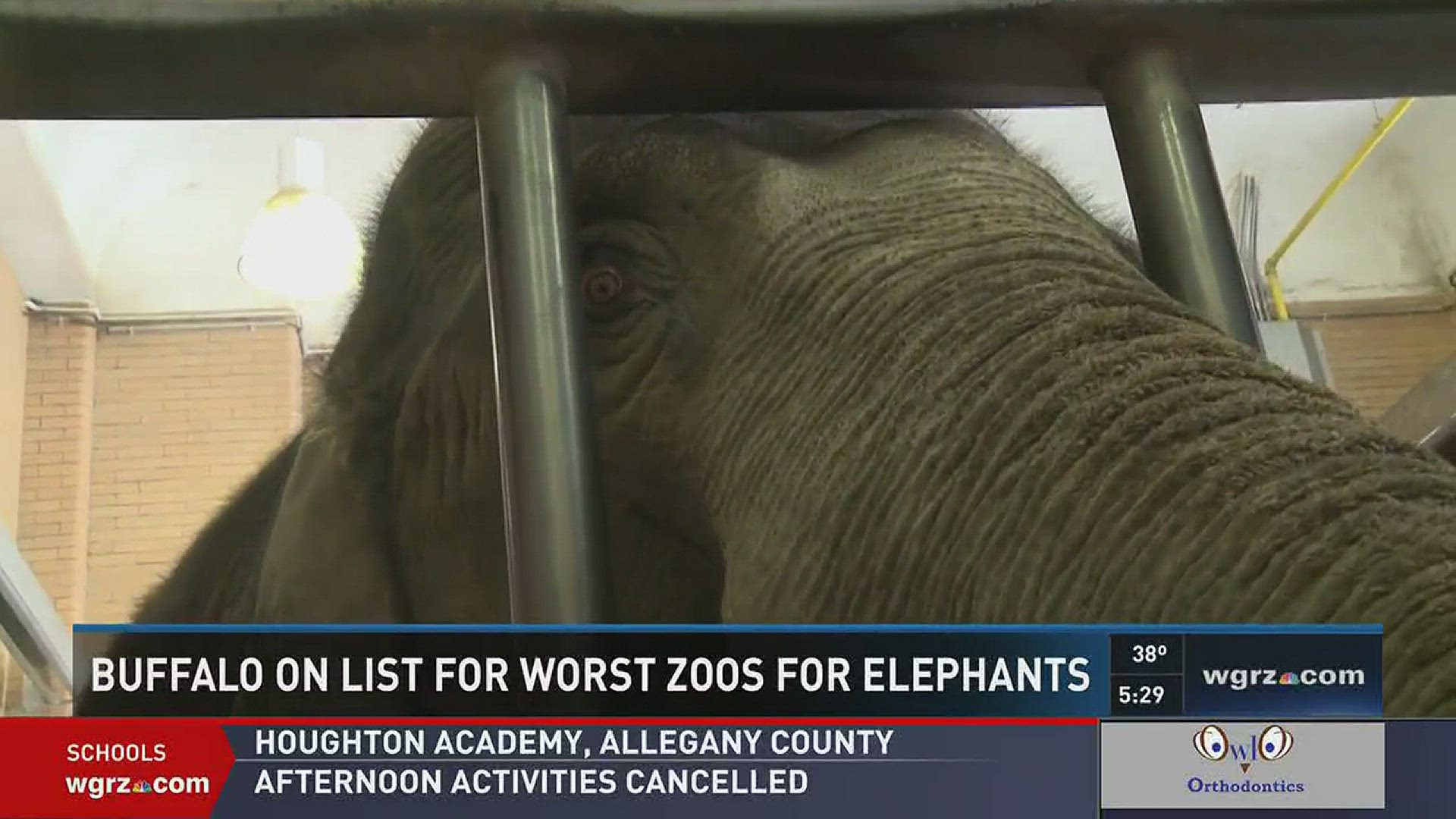BUFFALO, NY - The Buffalo Zoo once again makes the list of the Ten Worst Zoos for Elephants. Buffalo ranks sixth on the list created by In Defense of Animals.
Jothi and Surapa are the two elephants at the Buffalo Zoo. In Defense of Animals organization takes aim at their living conditions which they claim, among other things, can harm the elephant's feet and because of the cold weather and cramped enclosure - the group says it isn't good for an animal meant to be in a tropical climate.
Dr. Toni Frohoff of the group said "these elephants really need to be removed from this entirely inadequate exhibit and moved to a sanctuary because the conditions and behavior we observed were extremely disturbing."
Around the country, some zoos, including Seattle and Detroit have closed their elephant exhibits. Elephants prefer living in herds, Buffalo has two and that is not a herd. "If they are inside most of the year, even for months on end, that causes not just incredible psychological distress, but physical challenges and trauma to the elephants," said Dr. Frohoff.
The Buffalo Zoo released the following statement:
The Buffalo Zoo is an accredited member of the Association of Zoos and Aquariums (AZA). Our
elephant team has a wealth of education and experience, and provides our animals with the best
possible management. In 2007, the Buffalo Zoo's elephant barn underwent a $1 million renovation to double the indoor holding area and update the facility to meet the current standards for elephant husbandry set by
the AZA. In Defense of Animals, by its own definition – a network of determined activists is not recognized as
an authority on animal husbandry. Its recent list of the worst zoos for elephants, based solely on the
opinions of its authors, contains multiple false statements regarding Buffalo's elephant program,
such as the implication that the Buffalo Zoo restricts exterior access. In fact, both elephants are
provided access to the exterior yard, together. The Buffalo Zoo uses only "protected contact" and positive reinforcement training methods in working with our elephants. These practices dictate that the animals act only of their own free will, and are not forced to perform any behaviors. "The elephant keepers are incredibly dedicated to making sure their animals are happy and healthy year 'round," said Zoo president, Donna M. Fernandes. "They spend hours a day with Jothi and Surapa, cleaning and feeding them, and managing a schedule of enrichment activities. To imply that our elephants receive anything less than the best possible care would be a disservice to some of the most hard-working people in the industry. " The exhibition of elephants at zoos in New York State, including Buffalo, was instrumental in gaining support for legislation to ban the sale of ivory in New York State. In August of 2014, Governor Andrew M. Cuomo signed a law banning the sale of elephant ivory and rhinoceros horns. This will curb the poaching of elephants, which is responsible for the death of 96 elephants each day in Africa. Zoos are leading the charge in the protection of these highly endangered species. The Buffalo Zoo encourages anyone who is interested in the welfare of elephants to support those organizations who are working to protect elephants in the wild from poachers.
2 On Your Side's Claudine Ewing reached out to zoo officials to ask if they would consider moving the elephants to a sanctuary, but they declined to do an interview.
"These two elephants are their cash cows, they offer prestige to the zoo as trophies or what not so of course they are doing their best to keep these individuals clean and fed, but that's what's required of any zoo," said Frohoff.

